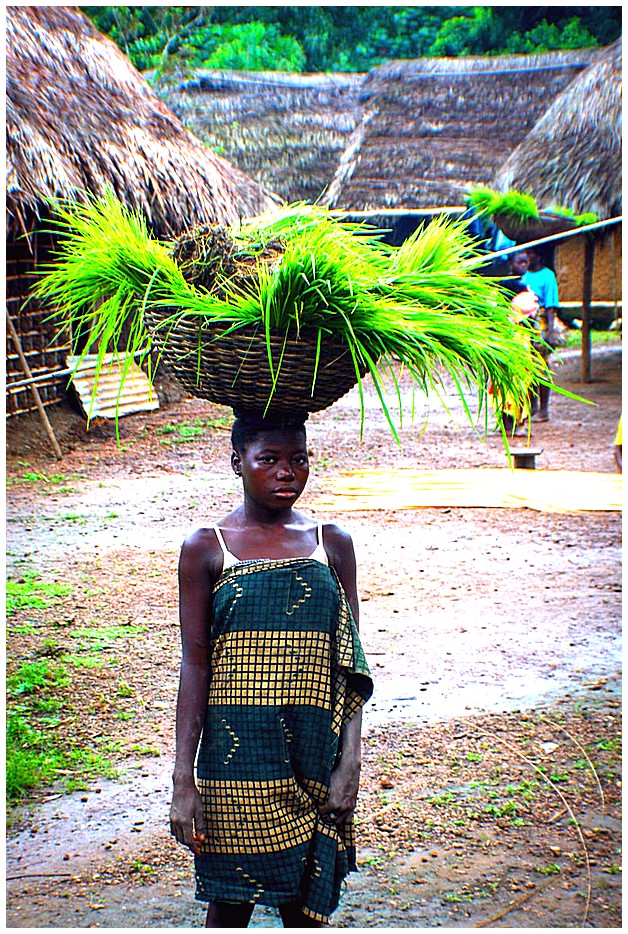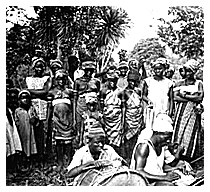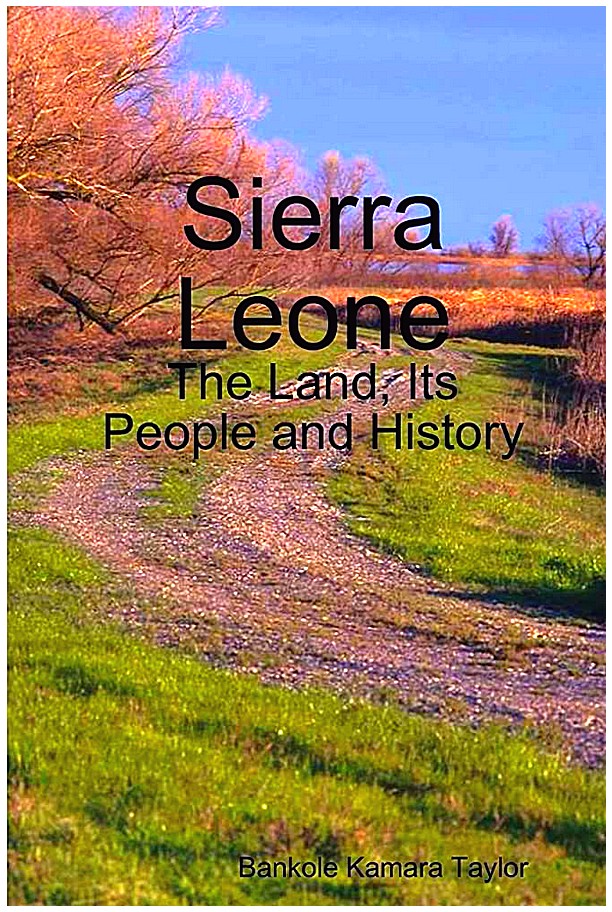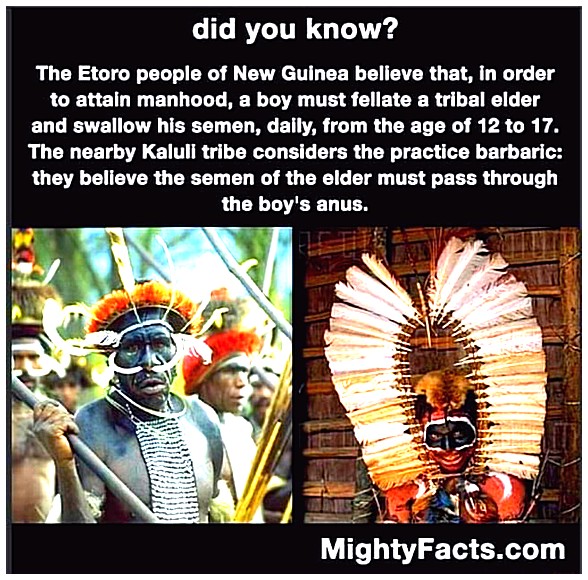Introduction to the Etoro People of Sierra Leone

The Etoro people of Sierra Leone are an ethnic group with a long and fascinating history. They have been living in the country for centuries, and their culture has remained largely unchanged over time. In this article, we will explore the unique customs and traditions of the Etoro people, as well as their current way of life. We will also discuss how they interact with other cultures in Sierra Leone and beyond. By understanding more about the Etoro people, we can gain insight into one of Africa’s oldest civilizations.
History and Origins of the Etoro People

The Etoro people are an ethnic group native to Sierra Leone. They have a long and rich history, dating back centuries before the country’s independence in 1961.
The origins of the Etoro people can be traced back to the 12th century when they were part of a larger group known as the Temne. The Temne migrated from present-day Guinea into what is now Sierra Leone, settling along its coastal region. Over time, this group split into several smaller groups including the Etoro who established their own distinct identity and culture within Sierra Leone’s borders.
Today, there are around 200,000 members of the Etoro people living in Sierra Leone. Most live in rural areas and rely on subsistence farming for their livelihoods while some have moved to urban centers where they work in various industries such as mining or manufacturing. In addition to agriculture, many also practice traditional crafts like basket weaving which has been passed down through generations since ancient times.
The language spoken by most members of the Etoro people is called Krio but English is also widely used due to its status as an official language of Sierra Leone since independence in 1961. Additionally, some members still speak their ancestral tongue known as Temne which was once spoken by all members of this ethnic group prior to splitting off into separate tribes centuries ago.
Despite facing numerous challenges throughout their history such as displacement during civil war conflicts and poverty caused by lack of access to education and resources; today’s generation remains proud of their heritage with many continuing traditional practices that honor ancestors past while looking forward towards a brighter future for themselves and those who come after them
Culture and Traditions of the Etoro People

The Etoro people are an ethnic group native to Sierra Leone. They have a rich culture and traditions that date back centuries.
One of the most important aspects of their culture is music, which is used for various occasions such as weddings, funerals, and other celebrations. The traditional instruments they use include drums, flutes, and xylophones. Music plays an integral role in Etoro life; it is believed to be a way of connecting with the spirit world and communicating with ancestors.
Another important aspect of their culture is storytelling. Storytelling has been passed down through generations as a way to preserve history and pass on knowledge from one generation to another. Stories are often told around fires at night or during special ceremonies like initiation rites or marriage rituals.
The Etoro also practice animism – the belief that everything in nature has its own spirit or soul – which influences many aspects of their lives including religion, art, medicine, food preparation techniques, and even hunting practices. For example, when hunting animals they will perform certain rituals before killing them out of respect for the animal’s spirit so that it can continue living in another form after death.
In addition to these beliefs about nature spirits there are also spiritual entities called “Gbanfogbo” who act as intermediaries between humans and gods/ancestors; they help resolve disputes among members of the community by mediating conversations between two parties involved in conflict resolution processes known as “Kpandebu” (peace-making).
Finally, some traditional customs still practiced today include dowry payments made by grooms prior to marriage ceremonies (usually consisting of money or livestock) as well as polygyny where men may take multiple wives if they can afford it financially or otherwise provide for them adequately according to cultural standards set forth by elders within each village/community setting
Language and Religion of the Etoro People

The Etoro people are an ethnic group living in Sierra Leone. They have their own distinct language and religion, which have been passed down through generations. The Etoro language is a mixture of English, Temne, Limba and other local languages. It is spoken by the majority of the population in the region. The Etoro religion is based on ancestor worship and traditional beliefs such as animism and spiritualism. Their religious practices involve offerings to ancestors, sacrifices to gods or spirits, healing rituals for illnesses or misfortune, divination ceremonies for guidance from ancestors or gods/spirits and more. These practices help them maintain their cultural identity despite outside influences from modern society.
Social Structure and Leadership Amongst the Etoro People
The Etoro people of Sierra Leone have a complex social structure and leadership system. At the top of the hierarchy is the paramount chief, who has ultimate authority over all other members of the tribe. Below him are sub-chiefs who are responsible for specific areas or tasks within their communities. These chiefs are elected by members of their own clans, with each clan having its own distinct leader.
In addition to these leaders, there is also an important role for elders in Etoro society. Elders act as advisors to younger generations and provide guidance on important matters such as marriage and inheritance laws. They also serve as mediators between different factions within a community and can help resolve disputes without resorting to violence or litigation.
Leadership amongst the Etoro people is based on merit rather than inherited wealth or power; individuals must prove themselves capable before they can assume positions of responsibility within their tribes. This means that those with strong skills in hunting, fishing, farming or trading may be able to rise up through the ranks faster than those from more privileged backgrounds.
Overall, it is clear that the Etoro people have developed a sophisticated system for managing their affairs which allows them to maintain order while still allowing individual autonomy and personal growth opportunities for all members of society regardless of background or status
Economic Activities in Traditional Society Amongst the Etoro People
The Etoro people of Sierra Leone have a long history of traditional economic activities. These activities are based on their strong cultural values and beliefs, which include the importance of family, community and cooperation. The main economic activity for the Etoro is subsistence farming, with small-scale trading also playing an important role in providing income for families. Hunting and gathering are also practiced by some members of the tribe as a source of food or to supplement other sources of sustenance.
In addition to these primary forms of economic activity, the Etoro practice several other forms that help sustain their society. For example, they engage in bartering goods between different households within their village or between neighboring villages; this helps ensure everyone has access to essential items like clothing and tools without having to purchase them outright from traders or merchants outside the village. They also use natural resources such as firewood and medicinal plants for various purposes including cooking meals, healing illnesses and making handicrafts which can be sold at local markets or exchanged among villagers for goods needed elsewhere in the community.
Finally, many members of the Etoro participate in seasonal festivals where music is played and dances performed – these events often involve gift giving among participants which serves both an entertainment purpose but also provides additional income opportunities for those involved through selling souvenirs or snacks during festivities. All together these various activities form an integral part of life amongst this unique culture – helping provide sustenance while simultaneously preserving their rich heritage through communal celebration
The Impact of Colonialism on the Lives of the Etoro People
The Etoro people of Sierra Leone have been greatly impacted by colonialism. The introduction of foreign ideologies, laws, and religions has had a significant effect on the traditional way of life for the Etoro people. Colonialism brought about drastic changes to their economy, social structure, and political system.
Economically speaking, colonialism caused an influx of new resources into the region that changed how the Etoro people interacted with their environment. New cash crops were introduced which allowed them to increase production and become more involved in global markets; however this also meant that they had less control over their own land as it was taken away from them for commercial use. Additionally, colonial rule saw a decrease in local autonomy as decisions were made without consulting or considering the needs of those living in these areas.
Socially speaking, colonization disrupted many aspects of traditional culture among the Etoro people such as language and religion. As Christianity became increasingly popularized through missionaries sent by European powers it began to replace many native beliefs and practices which resulted in cultural erosion within communities who had previously held strong ties to one another through shared customs and traditions passed down through generations. Furthermore, colonial forces imposed strict laws upon citizens which limited freedom of expression leading to further suppression amongst indigenous populations already struggling under oppressive regimes set up by colonizers looking to exploit natural resources found within these regions while simultaneously oppressing its inhabitants at every turn possible.
Politically speaking colonialism drastically altered power dynamics between different groups within society resulting in increased inequality between those with access to resources granted due to their status as colonizers versus those without any say whatsoever when it came time for decision making processes affecting entire communities regardless if they wanted it or not . This created an atmosphere where natives felt like outsiders even though they were technically partaking in what should have been considered home affairs since before colonization took place . All together , colonialism has left a lasting impression on how we view today’s world order – especially when discussing issues related specifically towards indigenous peoples whose lives have forever been changed due its presence .
Contemporary Issues Facing The Modern Day Etoro Community
The Etoro people of Sierra Leone have faced many challenges over the years, and contemporary issues continue to threaten their traditional way of life. In recent years, deforestation has had a major impact on the Etoro’s access to natural resources such as firewood and medicinal plants. Additionally, climate change is having an increasingly detrimental effect on agricultural production in the region, making it difficult for the Etoro to sustain their traditional livelihoods. Furthermore, political instability has led to increased levels of violence in some areas which further disrupts daily life for members of this community. Finally, rapid urbanization is putting pressure on rural communities like those inhabited by the Etoro people who are struggling to maintain their cultural identity while adapting to modern lifestyles.
Preservation Efforts for Maintaining Traditional Practices among TheEtiroPeople 10 .Conclusion: A Look Into The Future OfTheEtiroPeople
Conclusion: A Look Into The Future OfTheEtiroPeople
As the Etoro people of Sierra Leone continue to face a variety of challenges, it is important for their traditional practices and cultural heritage to be preserved. Through various preservation efforts such as education, conservation initiatives, and community-based programs, the Etoro people can ensure that their culture remains alive for generations to come. With these measures in place, the future of the Etoro people looks bright and full of potential. As they move forward into a new era with modern technology and global awareness, they will be able to keep their unique traditions alive while also adapting to changing times. By embracing both old and new ways of life, the Etoro people will have an opportunity to create a vibrant culture that celebrates both past and present.
| Etoro People | Other Sierra Leone Tribes |
|---|---|
| Language: Mende and Krio (Creole) languages are spoken. | Language: Numerous other languages, including Temne, Limba, Kono, and Loko. |
| Religion: Animism is practiced by the majority of the population. Christianity is also widely accepted among some members of the tribe. | Religion: Islam is widely practiced in many parts of Sierra Leone; traditional religions are also common among certain tribes. |
| Social Structure: The Etoro people have a hierarchical social structure with chiefs at the top and village elders below them who make decisions for their communities. Commoners are at the bottom level of this hierarchy. | Social Structure: Different tribes have different social structures ranging from patrilineal to matrilineal systems or even egalitarian societies where everyone has equal status within their community. |
What is the traditional lifestyle of the Etoro people?
The traditional lifestyle of the Etoro people is based on subsistence farming and hunting. They live in small villages located near rivers or streams, and their main source of food is yams, taro, fish, pigs, birds and other wild game. The Etoro also practice a form of ancestor worship known as ‘Famadihana’, which involves the exhumation and re-burial of deceased relatives. Other important aspects of their culture include an emphasis on male initiation rituals such as circumcision and face-painting ceremonies; communal decision making; and a strong sense of family loyalty.
How has the culture and traditions of the Etoro people changed over time?
The culture and traditions of the Etoro people have changed over time due to a variety of factors, including increased contact with outside cultures, changes in subsistence patterns, and population growth. As they have interacted more with other cultures, they have adopted some new practices such as modern education and technology. They also now rely less on traditional subsistence activities like hunting and gathering for their food sources. In addition, their population has grown significantly over the years which has led to an increase in intermarriage between different ethnic groups. This has resulted in a blending of cultural practices from both sides that are now seen among the Etoro people today.
What are some of the main beliefs and values that guide daily life among the Etoro people?
The Etoro people have a set of core beliefs and values that guide their daily lives. These include:
1. Respect for the environment and all living things, including animals, plants, rocks, and other natural elements.
2. A strong belief in ancestor worship as a way to honor those who came before them and ensure their well-being in the afterlife.
3. A focus on community cooperation rather than individualism or competition; they believe that everyone should work together to benefit the group as a whole.
4. An emphasis on sharing resources among members of the tribe so that no one goes without what they need to survive or thrive in life.
5. The importance of storytelling as a way to pass down knowledge from generation to generation about important events or lessons learned throughout history
Are there any special ceremonies or rituals associated with this tribe?
Yes, there are special ceremonies and rituals associated with this tribe. These include the naming ceremony for newborns, initiation rites of passage into adulthood, marriage ceremonies, funerals and memorial services, seasonal festivals to celebrate harvests or other important events in the life of the community, dances and songs to honor ancestors or gods, healing rituals for those who are ill or injured, as well as various spiritual practices that involve prayer and meditation.
How does art play a role in preserving their cultural heritage?
Art plays an important role in preserving cultural heritage by providing a visual representation of the values, beliefs, and customs that are important to a particular culture. Art can also be used to tell stories from the past and help keep alive traditions that have been passed down through generations. Through art, people can gain insight into their history and learn more about their culture’s unique identity. Additionally, art can serve as a form of expression for those who feel marginalized or silenced within society; it gives them an opportunity to share their perspective on life and connect with others who may share similar experiences.
Is there a specific language spoken by members of this tribe, or do they speak multiple languages?
It depends on the specific tribe. Some tribes may have a single language that is spoken by all members, while others may speak multiple languages.
Are there any current efforts to protect and preserve their unique way of life from outside influences?
Yes, there are current efforts to protect and preserve the unique way of life of Indigenous peoples from outside influences. These efforts include cultural preservation initiatives, language revitalization programs, land rights campaigns, and advocacy for traditional knowledge systems. Additionally, many Indigenous communities have established their own organizations to ensure that their cultures remain intact in the face of external pressures.
What advice would you give to someone who wants to learn more about this fascinating group of people in Sierra Leone?
My advice to someone who wants to learn more about the fascinating people of Sierra Leone would be to read books and articles written by authors from Sierra Leone, watch documentaries and films made in or about Sierra Leone, visit local museums that focus on the history and culture of Sierra Leone, connect with people from Sierra Leone online or in person if possible, listen to music created by artists from Sierra Leone, attend cultural events hosted by organizations focused on preserving the culture of Sierra Leone, volunteer with a charity organization working in or related to Sierra Leone.

05.05.2023 @ 13:46
tentious issues. The Etoro people also have a strong sense of community and family ties. They place great importance on respect for elders and the extended family unit. This is reflected in their social structure, where the head of the family is responsible for making important decisions and resolving conflicts within the family. The Etoro people also have a unique system of initiation rites for young men, which involves circumcision and a period of seclusion in the bush where they learn important skills and values such as bravery, discipline, and respect for tradition. Overall, the culture and traditions of the Etoro people are rich and diverse, reflecting their long and fascinating history in Sierra Leone.